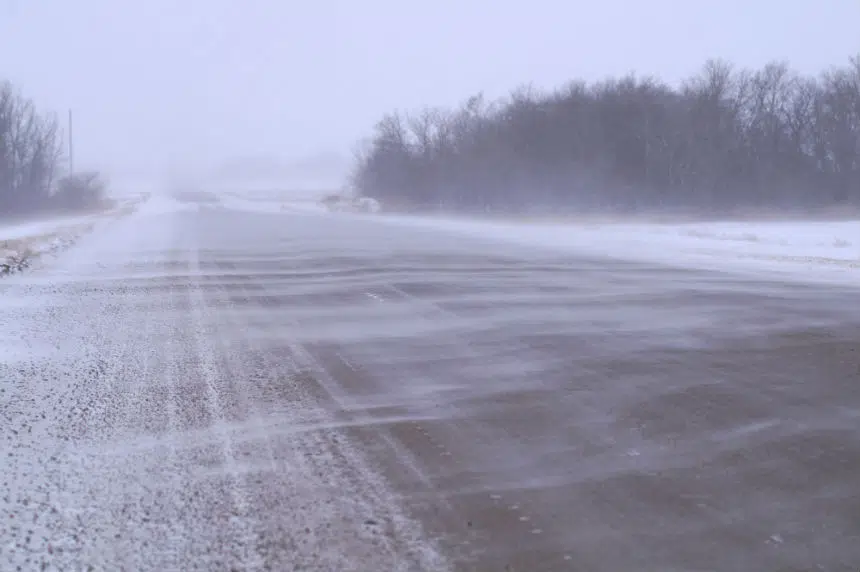Communities in southern Saskatchewan near the Manitoba border remain under a snowfall warning due to a storm that closed part of the Trans-Canada Highway for about 2 1/2 hours Monday.
Just before 11 a.m., the Highway Hotline reported the Trans-Canada was closed from Grenfell to the east Wolseley access due to ice. That stretch of the highway was reopened at around 1:30 p.m., but travel still wasn’t recommended.
Highway 48 from the junction of Highway 47 to the junction of Highway 35 also was closed, and travel wasn’t recommended on No. 48 from the No. 35 intersection to White City.
Travel also wasn’t recommended on Highway 33 from Stoughton to Sedley, and on No. 35 on the stretch between highways 33 and 306.
The snowfall warning included areas near Kamsack, Yorkton, Moosomin and Carlyle.
Snow is expected to be heavy at times on Monday, possibly up to 15 centimetres before the system abates on Tuesday.
“We’ve got a large system in northwestern Ontario. It’s just bringing waves of moisture westward into the prairie provinces. We had an earlier clipper system (Sunday) also affecting Saskatchewan. So it’s getting snow from all directions,” said meteorologist Jason Knight.
“We’re looking at a bit of a lighter snow today, another couple centimetres but perhaps another heavier band moving through tonight, perhaps five or so (centimetres) and a couple more on Tuesday as this system finally winds down before skies finally begin to clear.”
Knight said the heaviest recorded snowfall on Monday morning was in Wynyard, at 18 cm.
For the Saskatoon region, Knight said the snowfall is “all over for them,” with cloudy skies that will clear Tuesday.
Not so in Regina, where another 10 cm could fall by Tuesday night before the system winds down early Wednesday, Knight said. He added double-digit temperatures likely will not return until the weekend.
Knight said communities against the Manitoba border will see heavier amounts.
“(There will be) continuing waves of moisture,” he said. “(There’s) much-needed moisture coming into southeastern Saskatchewan.”







